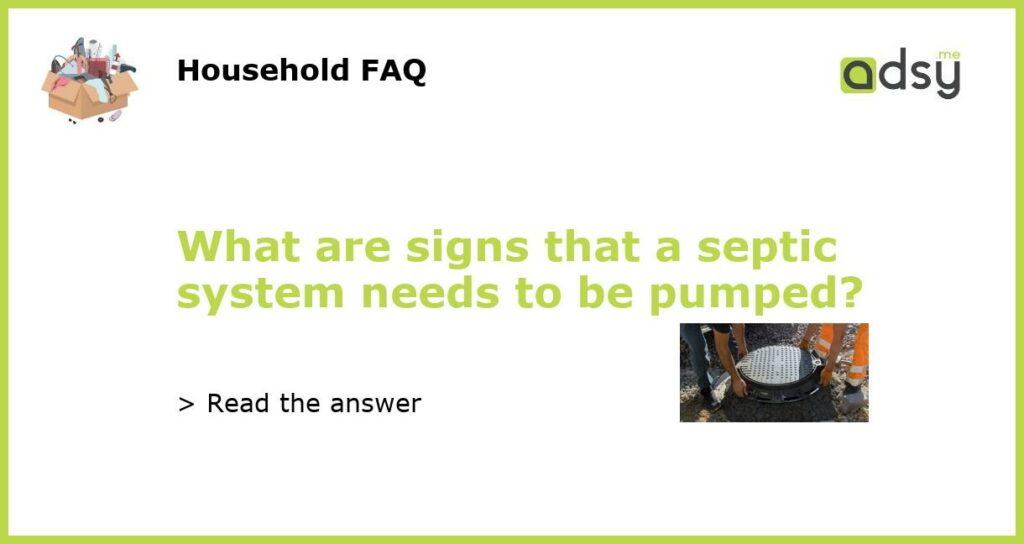Signs that a septic system needs to be pumped
A septic system is a crucial component of any property that is not connected to the public sewer system. It is responsible for treating and disposing of wastewater in a safe and efficient manner. Regular maintenance and pumping of the septic system are essential to prevent serious problems, such as backups and contamination. But how do you know when it’s time to pump your septic system? Here are some signs to look out for:
Slow drainage
If you notice that your sinks, toilets, or showers are draining slowly, it may be a sign that your septic tank is full and needs to be pumped. As wastewater enters the septic tank, solids settle to the bottom and form sludge, while grease and lighter solids float to the top to form scum. Over time, these layers accumulate and can block the drainage system, leading to slow drains and backups. Pumping the septic tank will remove the accumulated solids and restore proper drainage.
Foul odors
If you detect a foul odor coming from your drains, toilets, or the area around the septic tank, it could be a sign of a septic system problem. The odor is usually caused by the build-up of gases like hydrogen sulfide, which is produced by the decomposition of organic matter in the septic tank. When the tank is full or on the verge of overflowing, these gases can escape through the drains and vents, resulting in unpleasant smells. Pumping the septic tank will eliminate the source of the odor and improve the air quality in your home.
Pooling water or soggy soil
If you notice puddles of water or soggy soil in your yard, especially around the drain field or septic tank, it could indicate a problem with your septic system. When the septic tank is full, it can cause wastewater to back up and flow into the yard instead of properly draining. This can lead to standing water, which not only poses a health risk but also indicates a failure in the system. Pumping the septic tank will alleviate the excess water and prevent further damage to your property.
Increased frequency of pumping
Based on the size of your household and the capacity of your septic tank, you should typically have your septic system pumped every 3 to 5 years. However, if you find that you’re needing to pump your septic tank more frequently, it may be a sign that your system is not functioning properly. Factors such as a high water usage, a faulty or undersized system, or an excess of solids entering the tank can all contribute to the need for more frequent pumping. Consulting a professional septic service provider can help you determine the cause and address the issue accordingly.
Sewage backups or blockages
Perhaps the most obvious sign that your septic system needs to be pumped is the occurrence of sewage backups or blockages. If you experience toilets or drains backing up into your home, it means that the septic tank is full and can no longer hold any more wastewater. This can cause a serious health hazard and requires immediate attention. Pumping the septic tank will remove the blockage and restore the proper flow of wastewater.

